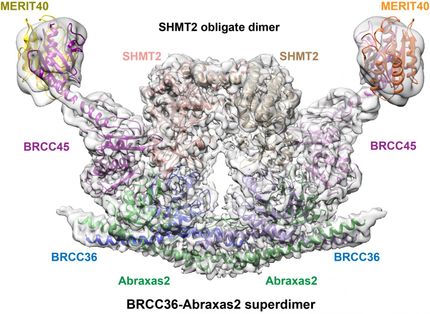Study suggests that tocotrienol has a common cancer-killing mechanism for different cancer types
Advertisement
Researchers from Davos Life Science in Singapore, in collaboration with scientists at the University of Hong Kong, have shown that gamma-tocotrienol, a member of the vitamin E family, is potent in killing prostate tumour cells in animal model studies. This research was reported in pharmacology. These findings come soon after previously published research studies that demonstrated in-vitro evidence of gamma-tocotrienol’s cancerkilling capability for breast cancer and melanoma cells.
In this latest study, immuno-compromised mice with human-grafted prostate tumours were given two weeks’ dosing of gamma-tocotrienol. Researchers saw that gamma-tocotrienol was selectively deposited in solid tumours, and this led to over 50% tumour shrinkage. Linked to this tumour shrinkage ability, gamma-tocotrienol showed two effects associated with the killing of cancer cells. Firstly, there was a decrease in the expression of two cell proteins (PCNA and Ki67) associated with cell proliferation. Secondly, there was the activation of cellular processes called caspase cascades that are associated with programmed cell death. These inhibitive properties have been previously reported in studies investigating the effect of gammatocotrienol on breast cancer and melanoma. Together, these data suggest a common mechanism by which gamma-tocotrienol is able to reverse the growth of cancer cells.
This study also found that the anti-tumour effect of gamma-tocotrienol was mediated by the suppression of the NF-KB cell signalling pathway. NF-KB is a protein that signals to the cell to produce chemicals that promotes the body’s natural inflammation response and cell survival. Over activation of NF-KB is associated with chronic inflammation. There is emerging evidence that chronic inflammation contributes to carcinogenesis and the development of malignancy in various organs, including the prostate, breast and skin.
“Previous studies have established natural tocotrienol as a promising opportunity for future R&D in cancer therapy and prevention,” said Dr Daniel Yap, Deputy Head for Tocotrienol R&D, Davos Life Science Singapore, and one of the authors of the published paper. “This research contributes further evidence to this cause, showing that natural tocotrienol can potentially reduce the risks of diseases associated with chronic inflammation, including certain cancers.”
Combining gamma-tocotrienol with other chemotherapy treatments
The inhibition of tumour growth was achieved when used in a combination treatment of gamma-tocotrienol and Docetaxel (DTX). Currently, DTX is the first-line chemotherapy treatment in patients with prostate cancer that is resistant to hormone therapy. However, DTX can only extend the patient’s overall survival by an average of 2-3 months. As the gamma-tocotrienol’s anti-tumour effects were observed using physiologically-relevant doses that do not negatively affect animal health, this may provide a new treatment strategy that can improve the therapeutic efficacy of DTX against advanced stage prostate tumours, while reducing toxicity often seen in patients treated with DTX.
Gamma-tocotrienol is one of eight forms of vitamin E. It is found in low levels in food sources such as palm fruits, cereal grains and rice bran. The amount of gammatocotrienol found in palm oil is relatively higher than in other sources. In previous invitro studies, gamma-tocotrienol was shown to be able to kill prostate, melanoma, breast and pancreatic cancer cells.
Dr Daniel Yap added, “In addition to this prostate cancer study, we are also advancing our Phase I clinical trial in the U.S. on pancreatic cancer. We expect to accelerate our tocotrienol research for the treatment and prevention of cancers. This latest study is yet another step forward in identifying potentially-effective naturally derived treatments that might have applications for cancer patients.”





























































